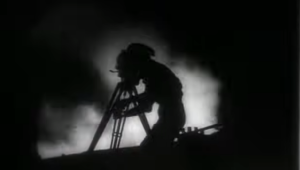If ever the Enterprise's Holodeck becomes a reality, then I guarantee you no one who could afford will want to live in the real life.
In Real Life (IRL)

Many of us are guilty of using those witless acronyms. I mean, why not? Who has time to type out clichéd phrases like “for what it’s worth” when you can just abbreviate them? My personal favorite is PEBKAC (problem exists between keyboard and chair). The newest acronym is IRL. It stands for “in real life.” It is used to differentiate between the real world and some other world. For example, I might say this about a Fortnite player: “Jamie is a real bush wookiee, but IRL he’s a pretty cool guy.” Which brings us to an interesting question: When did we first find it necessary to differentiate between real and not-real worlds?
Long ago, I can imagine a campfire and shaggy people demonstrating how they used their spears to bring down a woolly mammoth. Probably a thrilling reenactment, but I don’t think anyone would confuse that with reality. Later, the Greeks produced elaborate plays. Oedipus Rex is a heck of a story that lets me ponder fate and family values, but it’s just a play. Opera adds music, but Don Giovanni doesn’t lead me to believe that statues can come to life.
No, I think mankind’s first brush with unreality came with the invention of the phonograph. It is able to capture a real event, and more or less convincingly replay it. Under the right circumstances, a listener might confuse it with real life. In fact, when phonographs were still novel, a popular demonstration challenged audiences to tell whether it was live musicians or phonograph playback behind a curtain.
Mankind’s first brush with unreality came with the invention of the phonograph. It is able to capture a real event, and more or less convincingly replay it.
My favorite testimonial is from Anna Case, Metropolitan Opera soprano, who in 1915 stated, “Everybody, including myself, was astonished to find that it was impossible to distinguish between my own voice, and Mr. Edison’s re-creation of it.” Miss Case seems adamant: the differentiation between real life and a representation of it had suddenly gotten slim. My own observation is that the curtain concealing that phonograph in 1915 must have been pretty thick. Although, in all fairness to Miss Case, you will recall that Nipper was also apparently unable to tell the difference between his master’s voice and a recording of it.In any case, for perhaps the first time in history there arose the real question of what was real, and what was not. For the next century, engineers worked steadfastly, grinding out improvements in audio technology. Stereo came along as did binaural recording, which can be dramatically convincing. Add in film, video, color, interactive gaming, 3D, surround sound, and finally, today’s “virtual reality” technology. If Miss Case was astonished in 1915, I can hardly imagine her shock and awe if she could experience our home theaters today, or parachute into some good video gameplay.
Diminishing the margin between the real and its re-creation is, of course, exactly the goal of audio/video engineers everywhere. Even if we are rarely fooled, we must admit that the new stuff can be pretty persuasive. A good orchestral recording might sound much better than the best seat in the concert hall. And thanks to CGI, in movies we routinely see amazing sights that could never exist in reality. In those cases, we could argue that the not-real world has surpassed the real world. The day might come soon enough when our real lives are widely considered to be inferior to our virtual lives.
Whoa! I’m not sure I like the sound of that. A phonograph recording is one thing, but a synthesized existence that’s considered better than actual existence? No, thank you. I prefer to live IRL.
About The Author
Ken C. Pohlmann is an electrical engineer specializing in audio topics as a consultant and writer. He is Professor Emeritus at the University of Miami.
- Log in or register to post comments































































